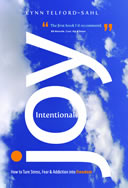Addicted to War: "War is a Drug"
 Tuesday, February 9, 2010 at 7:07AM
Tuesday, February 9, 2010 at 7:07AM  Post a Comment
Post a Comment  “The rush of battle is a potent and often lethal addiction, for war is a drug,” from author Chris Hedges’ 2002 bestselling book War is a Force That Gives Us Meaning. In the movie, “The Hurt Locker,” Jeremy Renner’s character is a soldier who becomes addicted to the adrenalin rush of defusing bombs in Iraq.
“The rush of battle is a potent and often lethal addiction, for war is a drug,” from author Chris Hedges’ 2002 bestselling book War is a Force That Gives Us Meaning. In the movie, “The Hurt Locker,” Jeremy Renner’s character is a soldier who becomes addicted to the adrenalin rush of defusing bombs in Iraq.
The consequences of his addiction are loss of connection to his fellow soldiers, his wife and young son, and a recklessness with his own life and with the safety of those under his command. Is our world addicted to war? Yes…and we can’t or won’t stop to consider other possibilities despite the consequences. In fact, a conversation about other possibilities never comes up for debate in Congress. To say NO to war has become synonymous with weakness. President Obama just asked Congress to approve another $700 billion for the war in Afghanistan. But the cost is more than the dollars spent in the Middle East. For every soldier lost, wounded or returning home with an injured body, mind and spirit, millions more are spent on rehab, therapy, disability and the lost dreams of another wounded young person.
Is our world addicted to war? Yes…and we can’t or won’t stop to consider other possibilities despite the consequences. In fact, a conversation about other possibilities never comes up for debate in Congress. To say NO to war has become synonymous with weakness. President Obama just asked Congress to approve another $700 billion for the war in Afghanistan. But the cost is more than the dollars spent in the Middle East. For every soldier lost, wounded or returning home with an injured body, mind and spirit, millions more are spent on rehab, therapy, disability and the lost dreams of another wounded young person. One definition of addiction is the loss of control over how much or when to use a substance or a behavior. An addict is someone who can’t stop their behavior even when it’s causing serious consequences. We are a country and a world in denial. As an addiction specialist, I know that often denial can only be broken by an intervention that clearly, firmly and lovingly states the problem, the consequences and the course of action necessary – get into treatment or else. When will the world decide to break out of the addiction to war? When enough individuals have healed the terrorist within – when enough of us have let go of the ego’s addiction to fear and made the higher choice for love.
One definition of addiction is the loss of control over how much or when to use a substance or a behavior. An addict is someone who can’t stop their behavior even when it’s causing serious consequences. We are a country and a world in denial. As an addiction specialist, I know that often denial can only be broken by an intervention that clearly, firmly and lovingly states the problem, the consequences and the course of action necessary – get into treatment or else. When will the world decide to break out of the addiction to war? When enough individuals have healed the terrorist within – when enough of us have let go of the ego’s addiction to fear and made the higher choice for love.








Reader Comments